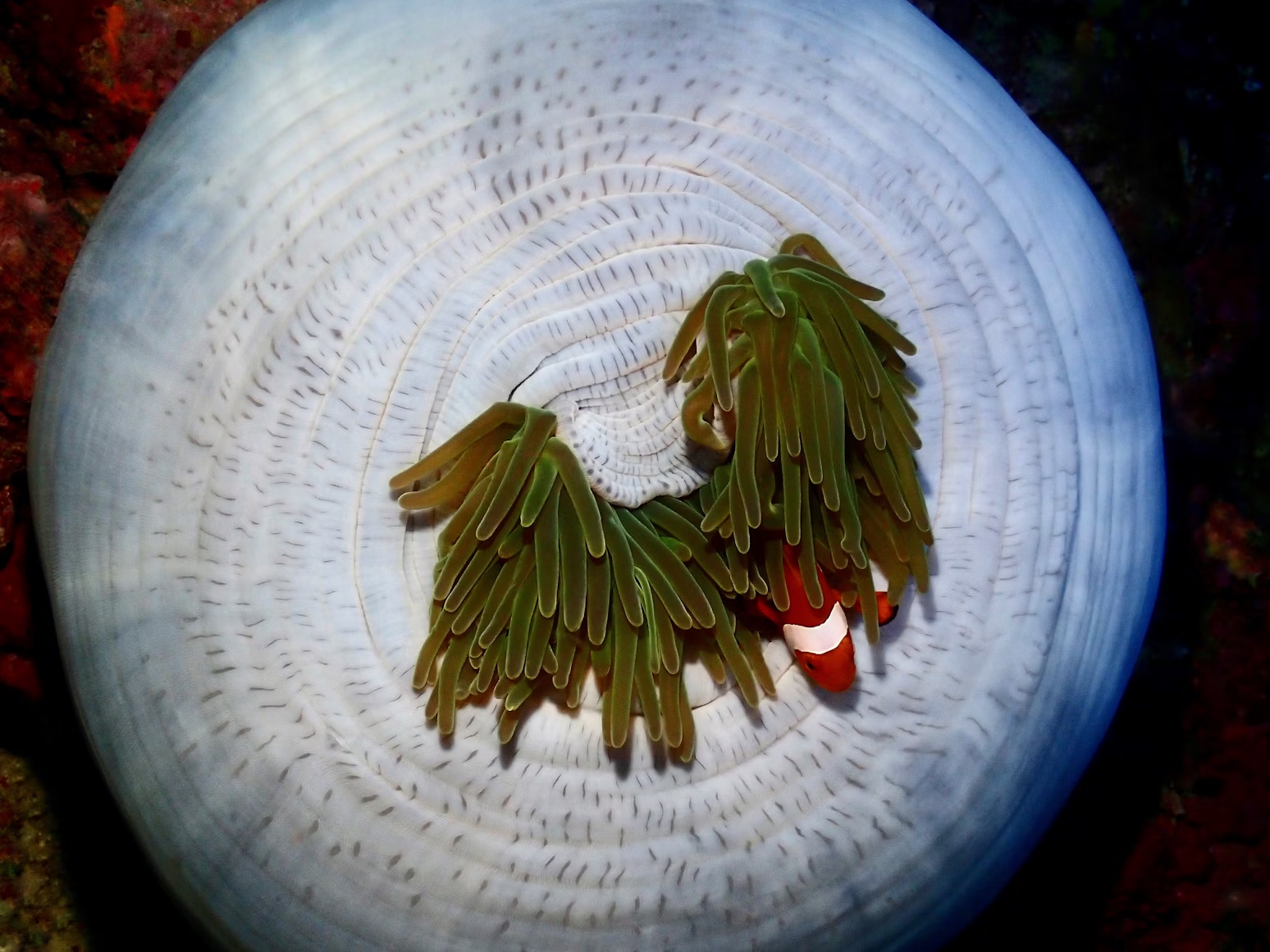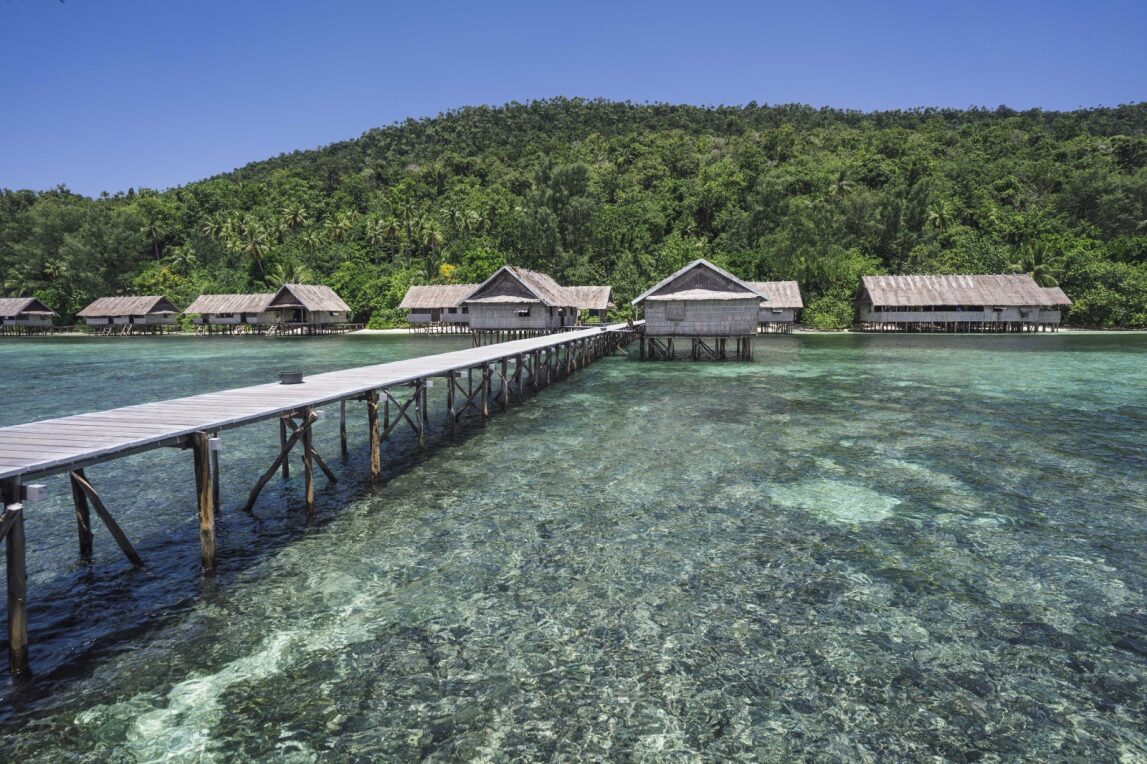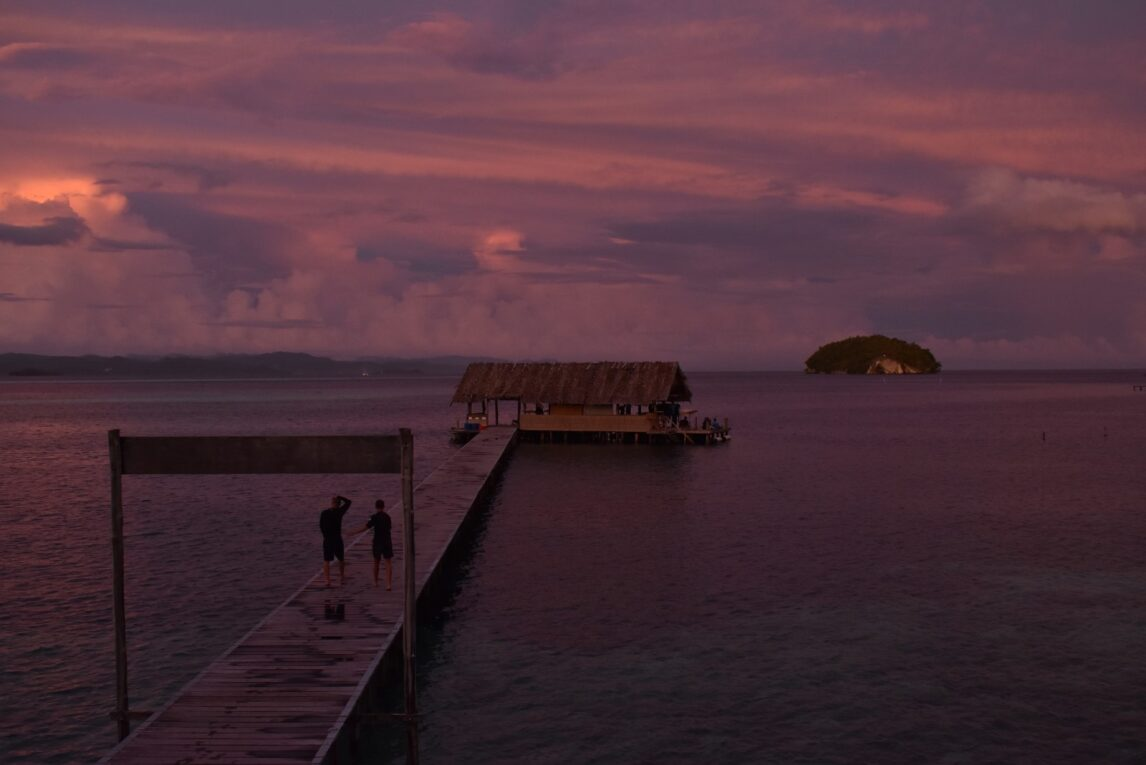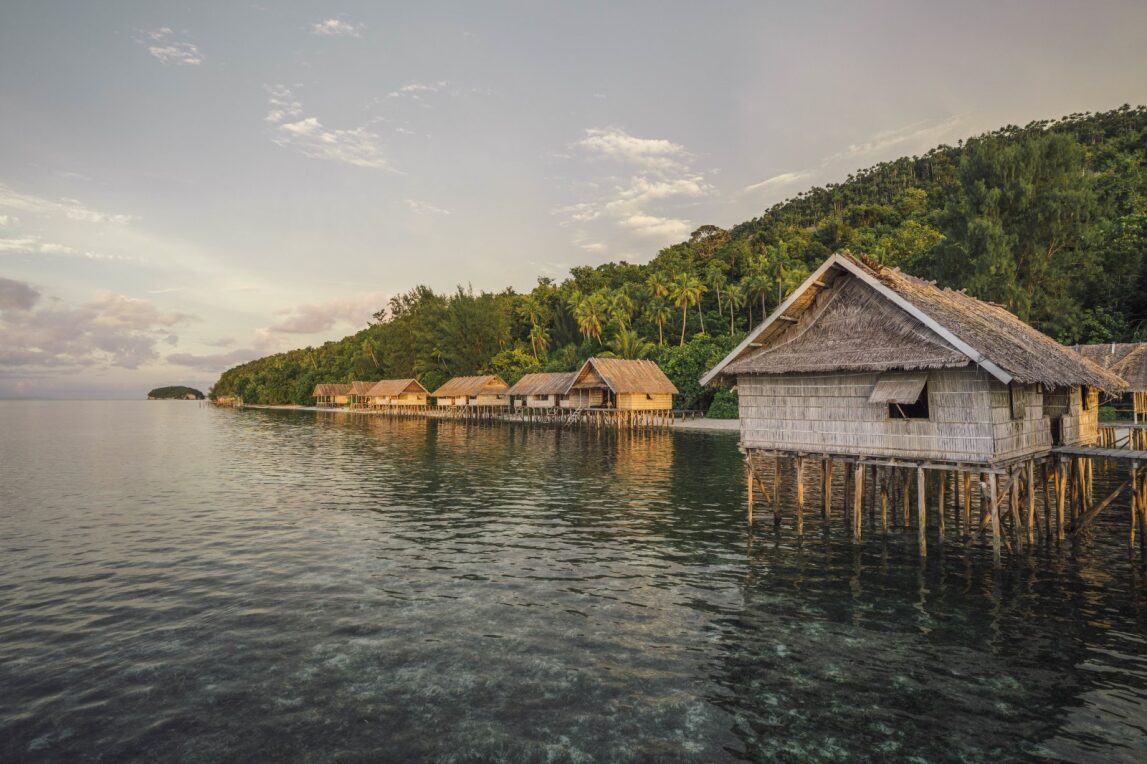
Biodiversity Hotspot: Cape Kri Dive Site of Raja Ampat
Cape Kri has been recognized as one of the richest and most biodiverse dive sites in Raja Ampat and the world. So it’s no wonder that it’s on every diver’s bucket list.
- April 26, 2024

Cape Kri has been recognized as one of the richest and most biodiverse dive sites in Raja Ampat and the world. So it’s no wonder that it’s on every diver’s bucket list.
Cape Kri has been recognized as one of the richest and most biodiverse dive sites in Raja Ampat and the world. So it’s no wonder that it’s on every diver’s bucket list. If you’ve planned your diving trip to Raja Ampat with Papua Diving Resorts, you’ll be pleased to know that Cape Kri is right at our doorstep, just a quick 1-minute boat ride from our resort.
Filled with nutrient-rich waters, stunning coral gardens, and sea creatures of all shapes, colors, and sizes, Cape Kri is ideal for anyone looking to experience the sheer number of fish species, pelagic fish, sharks, turtles, manta rays, and macro life.
With over 100 fish species per 50m transect recorded, it’s no wonder Cape Kri has gained a reputation as one of the world’s best dive sites. Let’s explore Cape Kri with Papua Diving Resorts.
Cape Kri was made famous by a world-record fish count of 374 species seen on a single dive. This record was set by Dr. Gerald R. Allen, a renowned marine biologist who visited Cape Kri multiple times to document and survey the site. In an interview, Dr. Gerard Allen said, “One of my favorite places to dive in Raja Ampat is Cape Kri near Sorido Resort. Over a decade ago, years before Raja became THE place to dive in the world, I counted 327 fish species on a single dive.
I went back about two years ago and couldn’t believe the positive changes on the site. Most impressionable to me was the fact that the fish had become accustomed to divers. I didn’t even have to look for fish. They found me! The survey was the highest species count I’ve ever tallied on one dive, 374 distinct species in 90 minutes!”

The eastern part of Cape Kri has been called “the superhighway for marine life”, thanks to two intersecting currents, bringing masses of fish species and marine creatures together. According to PADI, Cape Kri offers excellent biomass, phenomenal activity, and diversity with interesting currents. There’s a sloping wall that goes down at least 40 feet to the bottom of the reef. Coral life here is healthy, vibrant, and colorful, with a wide variety of hard and soft corals, sponges, and sea fans.
When diving at Cape Kri, you’ll be sure to come face-to-face with massive schools of jacks, snappers, batfish, spadefish, angelfish, surgeonfish, napoleon wrasses, bannerfish, unicornfish, squirrelfish, triggerfish, sweetlips, butterflyfish, spanish mackerel, giant trevally and tuna, and large schools of snappers, cardinal and fusilier, just to name a few. Of course with all of the fish species swimming about, there’ll be lots of opportunities to spot predators like barracuda, reef sharks, and oceanic sharks. Depending on the currents and season, you may even spot manta rays and sea turtles.
Fans of macros will not be disappointed here at Cape Kri and can look forward to spotting nudibranchs and shrimps, pygmy seahorses, and various kinds of scorpion fish, flatworms, octopus, and other tiny creatures.
The best time to dive at Cape Kri would be at dawn or dusk when it is feeding time and most of the fish and marine creatures are out and about searching for a meal. At Cape Kri, visibility is great all year round, with water temperatures ranging from 27°C to 30°C throughout the year. We don’t recommend snorkeling here as the reef isn’t shallow and the surface currents can be strong.
Divers and travelers looking to experience Cape Kri in Raja Ampat will need to fly into Sorong and then take a ferry to Waisai, the main town on Waigeo Island. From Waisai, you’ll need to arrange for a private speedboat transfer to Kri Island, the closest land location to Cape Kri.
Fortunately for guests of Sorido Bay Resort and Kri Eco Resort, you’ll be picked up from Sorong Airport by a member of our staff, as all transfers will be arranged for you when you book to stay with us. Our standard package of a minimum of 7 nights includes boat transfers on select days. Learn more about our boat transfers and boat transfer schedules.
Embark on a diving holiday to Raja Ampat and explore Cape Kri with Papua Diving Resorts. Our unique location along the Dampier Strait makes us a favorite with divers. Our two private dive resorts – Sorido Bay Resort and Kri Eco Resort – both come with their own dedicated dive centers with PADI Dive Courses available, complete with fully serviced, high-quality rental equipment. Dives and courses are led by experienced PADI professionals with many years of experience.

Perfect for those who want a touch of luxury, Sorido Bay Resort is a collection of 7 charming bungalows with spacious rooms and ensuites, each with AC or fan and a veranda that overlooks a vibrant house reef.

Looking out over the dark blue waters of the Dampier Strait and distant mountain ranges, Kri Eco Resort is a cluster of authentic Papuan-style water bungalows built from locally sourced materials with 3 room types to choose from.
Ready to explore Cape Kri with Papua Diving Resorts? Explore what we offer, and book your Raja Ampat holiday now with the best rates and inclusions.

